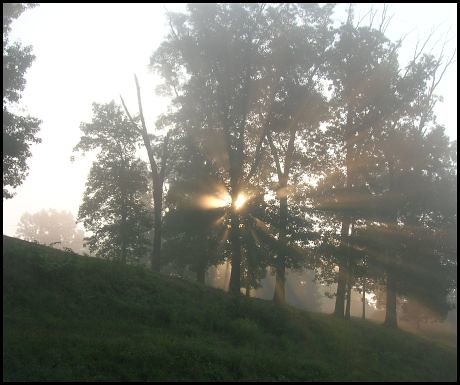Frozen Death
There is a scene in the movie The Lion, the Witch and the Wardrobe where Edmund and Aslan are speaking to each other. The conversation is private, up on a hillside, with Edmund’s family watching from a distance. Edmund has just returned from the White Witch, and one gets the feeling that Edmund and Aslan are discussing Edmund’s sins.
Aslan brings the brother back to his family for a reunion, and he tells the family to not speak of Edmund’s wrongdoing again. I understand the point of the scene is to explain that the sin has been forgiven; let’s move on from it, and I noticed last night, as I watched it, that this action freed the other three children to greet Edmund in love.
But it all makes me wonder….
There is a song by Casting Crowns (Again? Can’t we move on from Casting Crowns? Hush! I’m listening to other CD’s now, but this song fits.) called Stained Glass Masquerade (complete lyrics):
Is there anyone that falls
Am I the only one in church today feelin’ so small?
Cause when I take a look around
Everybody seems so strong
I know they’ll soon discover
That I don’t belong.
The lectionary readings I read this morning were 2 Samuel 12:1-13:, which is about Nathan’s confrontation of David about his sin with Bathsheba and Psalm 51, which is David’s confession psalm after this incident. The author of the devotion speaks of how confession can be freeing.
How does showing our weaknesses build up the body of Christ?
When we were at SpiritSong, the lead “guy” for Casting Crowns spoke of how he has attention deficit disorder (Please listen carefully – I am in no way equating ADD with sin – I mention this because Mark Hall was speaking about it how it has been a challenge for him). I was so impressed that he would share this part of himself with the audience. How many kids sitting there had ADD or knew someone who did? How many now look at what God has accomplished through Mark Hall, and realize that God can remove any stumbling block from the paths He wishes them to take?
How much more so with sin? I’m not advocating that we all stand up on Sunday morning and confess our sins to the congregation. It would take way too long, and you know we need to be at lunch at noon. I do think, though, that by never talking about our shortcomings, we leave the impression that we don’t have any – we leave that impression with ourselves. Not talking about what we do wrong; not taking time to apologize, can leave us judgmental and “plastic.” Hard and shiny, but ready to crack under pressure. I’m not sure that Aslan’s “Let’s not speak of it again” philosophy is always the best policy – I’m sure sometimes it is, but is it always?
We went to Faith UMC last night for the pre-opening (I don’t know what to call it) of VBS. The VBS theme is The Lion, the Witch and the Wardrobe, so we watched the movie together (in their Sanctuary; on their projection system, she whispers snidely (I want one in ours)). If you’ve read the movie or seen the book (are you paying attention?) then you know that there is a scene where the White Witch kills Aslan in payment for Edmund’s sin. Last night, at the point right before this – when they’re shaving Aslan, and being generally horrible to him, the projection system lost sound – silent torture. To try to fix the problem, they paused the movie. They paused the movie at the exact moment when Jadis kills Aslan, and the paused scene on the screen was the very moment when life fades from the lion’s face. His death – frozen in time, and huge on the screen in front of us (for a long two or three minutes).
I wonder if we sometimes leave Christ’s death like that. We fail to push the play button, and we fail to carry the gospel all the way to the resurrection. I know some would argue that the moment in time frozen on the screen last night is the very one that saves me from my sins. It’s the resurrection, though, that brings it all alive.
We need to live as resurrection people, free from sin, and able to realize that our sins and weaknesses can be used by God for his own purposes. We need to live free from the fruit of self-righteousness – judgment.
It’s hard. It’s a challenge to step beyond the sin to the forgiveness and mercy that is offered. But I think that it may be essential.
BTW: It was worth the price of admission to watch Pam G jump out of her skin when Edmund first meets the nasty wolf among all of Jadis' lawn art. It's a good thing the pews at Faith are screwed to the floor, or she might have lifted one off the ground.






















